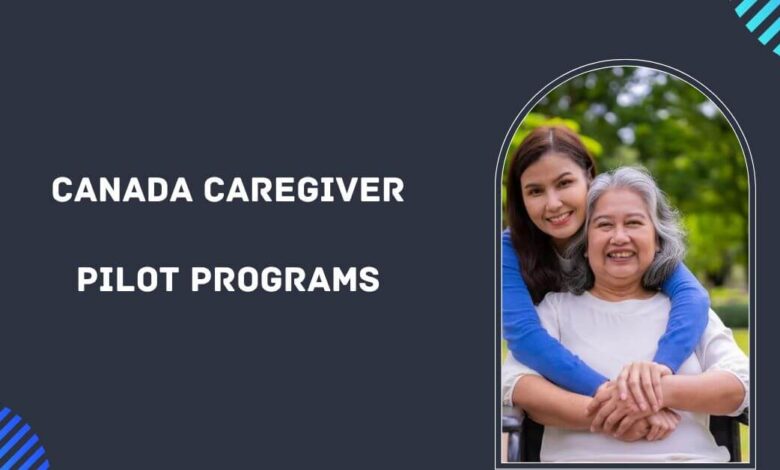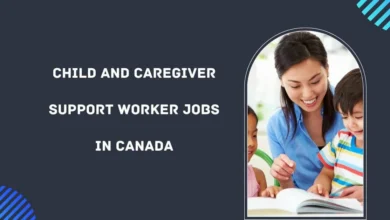Canada Caregiver Pilot Programs 2024 – IRCC

Applications are being accepted by Immigration, Refugees, and Citizenship Canada (IRCC) for two vital caregiver experimental programs. category for the Home Support Worker Pilot and the Home Childcare Provider Pilot: Direct to Permanent Residence. In this section, we elaborate on the particulars of these initiatives and report on any recent revisions.
The Renewal and Reset
To foster a more supportive caregiver environment, IRCC intends to reinstate the maximum number of applicants for both experimental programs. The Home Support Worker Pilot: Direct to Permanent Residence and Home Childcare Provider Pilot are programs that individuals with prior experience in caregiving can utilize. Since their inception in 2019, these initiatives have gained significant momentum, enticing around 1,100 caregivers and their families to pursue permanent residency by 2022.
Time Is of the Essence
Time is a factor that cannot be emphasized enough. The IRCC advises ambitious candidates to submit their applications promptly. As per the official website, unoccupied positions continue to exist for the Home Support Worker Pilot. Caregiving aspirants are urged to seize the opportunity without delay, given the impending reset.
Check Also: Caregiver Jobs in Canada For Foreigners with Visa 2024
Work Experience Requirement Have Been Reduced
There was a significant occurrence that altered the caregiving environment. The work experience prerequisite for caretakers has been drastically reduced by the IRCC, from 24 to 12 months of full-time employment.
As per the IRCC, the criterion for a full-time position is 30 hours of paid labor per week. Additionally, the necessary work experience must have been acquired within the 36 months before the submission of the application. It is worth noting that any employment experience acquired during the applicant’s student years is not eligible for evaluation.
As stated by Salma Zahid, the Member of Parliament for Scarborough Centre, “It is an honor to facilitate a more streamlined path to permanent residence and successful integration into Canada for the indispensable assistance they provide to Canadian families in the form of caregivers.”
“The lowered work experience requirement and reserved pathways to permanent residence acknowledge the commitment and value of caregivers’ labor in service of Canadian society.”
The caregiver pilots are an element of the initiative that Ottawa is implementing to assist Canadian businesses in addressing the labor deficit issues that are currently being encountered.
To qualify to submit an application for permanent residency under the auspices of the HCCP and HSW, individuals must satisfy the following criteria:
- An employment proposition;
- CLB 5 proficiency level; and
- one year of postsecondary education in Canada or an equivalent program abroad.
Criteria for Specific Work Experience
Applicants are required to fulfill the work experience criteria outlined by IRCC. The work experience must be in precise accordance with the NOC job description and correspond to NOC codes 4411 or 4412. Combining positions under both codes is strictly prohibited; the candidate must concentrate on the essential responsibilities associated with the selected NOC code.
Understanding Changes in LMIA Processing Time in Canada
Aside from modifications to the work experience prerequisites, all other criteria for candidates remained unchanged. Language proficiency as measured by the Canadian Language Benchmark (CLB) of five, completion of one year of postsecondary education in Canada or an equivalent program abroad, and successful completion of a health, criminal background, and security examination are the prerequisites.
Temporary Resident Caregivers’ Options
Caregivers who fail to meet the permanent residency requirements of the pilot programs remain viable candidates under the Temporary Foreign Worker Program (TFWP). To extend a work permit, caregivers require their employers to obtain a Labour Market Impact Assessment (LMIA) from Employment and Social Development Canada (ESDC) that is either positive or neutral. The LMIA serves as evidence that the employer was unable to locate a qualified Canadian or permanent resident to fill the position.
A favorable or neutral verdict enables the employer to employ the caregiver, who subsequently operates under an employer-exclusive closed work permit. With the resumption of the caregiver pilot programs in 2024, the prospects for caregivers to acquire permanent residency in Canada continue to be favorable. Caregivers are strongly encouraged to embark on this transformative journey as soon as possible, due to the accelerated application process and reduced work experience prerequisites.
Applicants For Caregiver Pilot Programs Must Have Valid Job Offers
Please follow these steps to enroll. Additionally, to obtain a work permit, the candidate must apply for permanent residence and provide proof of employment or a valid study permit for both themselves and their family.
This should entail obtaining an occupation-specific work visa to gain the required number of hours of work experience for permanent residence certification.
Upon fulfillment of the work experience stipulation, the applicant for permanent residency is obligated to furnish the Immigration and Refugee Commission (IRCC) with substantiating documentation.
Prospective candidates with prior experience as in-home caregivers in Canada are presented with two distinct alternatives:
- They have the option of applying for permanent residence by the aforementioned two-step procedure, completing the necessary work experience, or
- Assuming the general requirements are fulfilled, they may continue working in Canada with a valid work permit and petition for permanent residence upon completion of the work experience term.
Benefits of Canada Caregiver Pilot Programs:
- How to Acquire Permanent Residency: A primary advantage of the caregiver pilot programs is that they provide access to Canadian permanent residency. Permanent residency may be available to caregivers who effectively work in Canada and meet the program’s requirements.
- Permit to Work with a Job Offer: Approved caregivers participating in the pilot programs are issued a work permit validating their employment in Canada. This work permit is contingent upon the employer providing a formal job offer.
- The Reunification of Families: The programs take into account the welfare of the families providing care. Dependent children, spouses, or common-law partners who meet the eligibility requirements may also be permitted to reside with the caregiver in Canada.
- Occupation-Specific Qualifications: Tailored for particular caregiver occupations—including home support workers and home child care providers—are the pilot programs. This facilitates a more precise strategy for addressing the particular requirements of families in Canada.
- Permits to Work Openly for Spouses: Spouses or common-law partners of caregivers who qualify for open work permit under the pilot programs may be permitted to work for any Canadian employer.
- Accelerated Procedures: Caregivers and their families are frequently granted expedited processing through caregiver immigration programs, which facilitates a more streamlined immigration journey.
- Process Improvements to Labor Market Impact Assessments (LMIA): Adjustments have been made to the LMIA process for caregiver positions to facilitate the hiring of caregivers through experimental programs by employers. This may expedite the process of matching caregivers with families in Canada.
- Safeguards Against Unemployment: Provisions are incorporated into the pilot programs to safeguard caregivers in the event of unemployment. Caregivers may qualify for an open work permit under specific circumstances, which would enable them to pursue alternative employment opportunities.
- Support for the Application for Permanent Residency: Supplementary assistance is extended to caregivers who have effectively fulfilled their duties in Canada through the pilot programs while pursuing permanent residency. This encompasses aid in procuring essential documentation and fulfilling program prerequisites.
- Enhancements to Working Conditions: To enhance the working conditions of caregivers, the programs provide more explicit directives regarding compensation, working hours, and job duties.
Steps for applying for Canada PR through Caregiver Programs
- Check your eligibility: To access additional details, please visit the official Canada.ca website.
- Learn the language: Employ certified language examinations to showcase your proficiency in English or French.
- Get your education assessed: Permit designated Canadian institutions to assess your credentials from an international education standpoint.
- Submit your application: Complete and submit your application for permanent residence.
- Biometrics and the Last Steps: You must attend a biometrics appointment and comply with any additional instructions provided by Immigration, Refugees, and Citizenship Canada (IRCC) to receive a final decision regarding your application.
Current status of the application
Although the capacity for online applications has been reached for the Home Child Care Provider Pilot, the alternative format remains accessible.
Applications for the Home Support Worker Pilot program are still being accepted online and through alternative media.
For More Info:
Email Your CV, and We’ll Find the Best Pathway For you: info@caregiverjobswithvisa.com
Frequently Asked Questions:
-
Who is eligible for the new caregiver pilot program in Canada?
Applicants should have valid one-year verifiable experience in the same discipline under which they are applying, i.e., HCCP or HSWP. Have language test results with a Canadian Language Benchmark (CLB) of 5 in English or French.
-
Is Canada still accepting caregivers?
Caregivers will now only receive a work permit if they have a job offer in Canada and meet standard criteria for economic immigration programs. Once working in Canada, caregivers will be able to begin gaining the required two years of Canadian work experience to apply for permanent residence.
-
Who is eligible for the pilot program in Canada?
Candidates must have qualifying work experience or have graduated from a publicly funded post-secondary institution in the recommending community. Candidates must have one year (1,560 hours) of full- or part-time work experience in the last three years.



